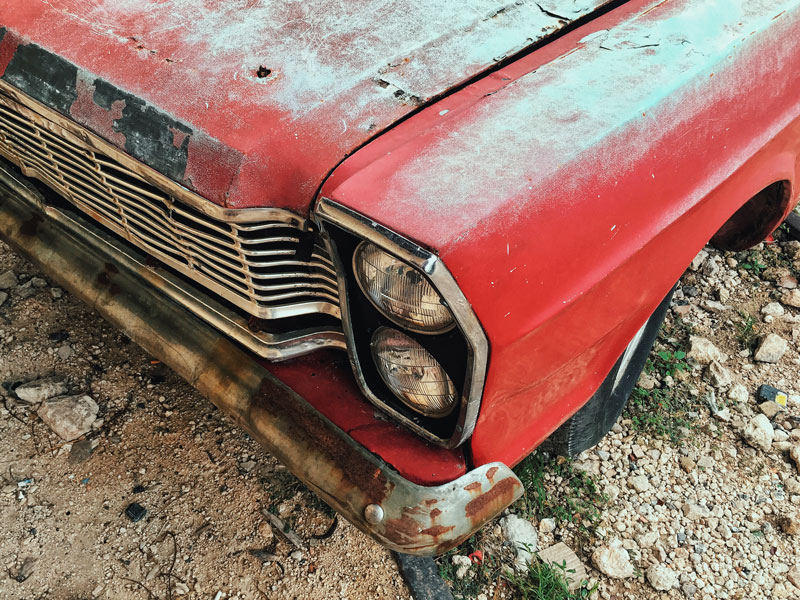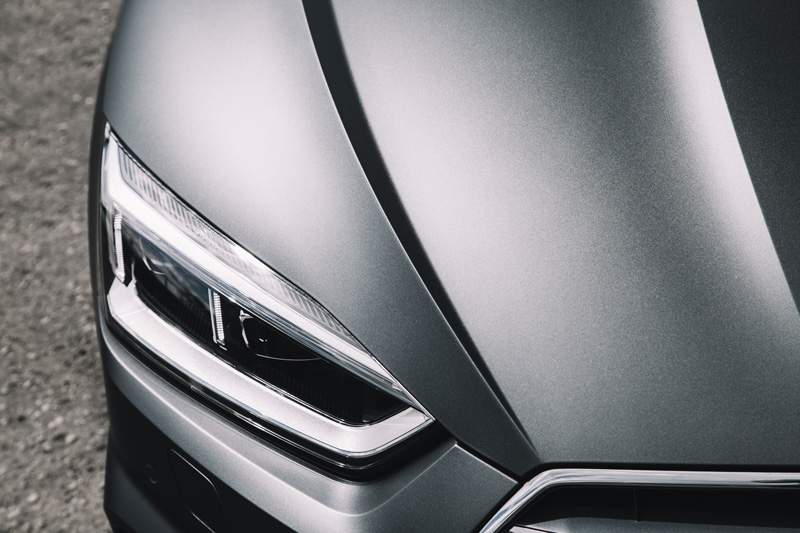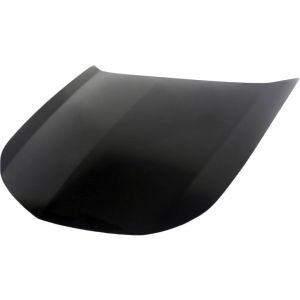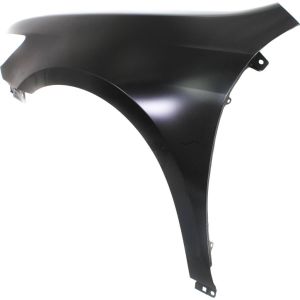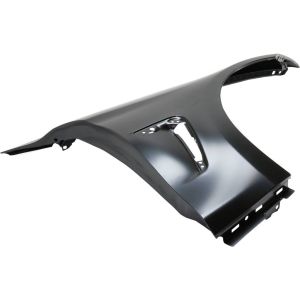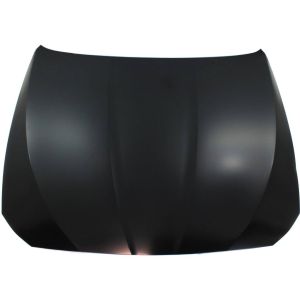Is it really possible to keep your car completely rust-free? You may think it's all about frequent washing and waxing, but there's more to it than meets the eye.
Rust prevention on your car requires consistent care and attention, from promptly patching up minor paint chips to using rust-proofing sprays. But can you guess what the most overlooked yet essential step is in preventing car rust?
Stay with us, and you'll discover the hidden key to keeping your ride looking its best for years to come.
Key Takeaways:
- Regularly clean and dry your car, including the undercarriage, to remove rust-promoting substances.
- Apply car wax to create a protective barrier against water and reduce rust formation.
- Check and maintain the car's paint job, repairing any chips or scratches to prevent metal exposure.
- Use rust-proofing sprays or paints for additional protection against corrosion.
- Conduct frequent inspections for early detection of rust, particularly in prone areas like the undercarriage.
What Is Rust?
Although you may know rust as the reddish-brown substance that tarnishes your car's shiny surface, it's actually a form of corrosion caused by a reaction between iron, oxygen, and water or moisture.
This unsightly enemy can quickly degrade your vehicle's appearance and structural integrity if left unchecked. But don't fret, there are several rust prevention techniques and corrosion control strategies to put into action.
Regularly cleaning and drying your car, especially after exposure to salt or moisture, is a significant first step. Using rust inhibitors or prevention sprays can add an extra layer of protection.
Don't forget to immediately repair any scratches or dents, which can expose the metal underneath to rust-inducing elements. These proactive measures will help keep your ride rust-free and looking its best.
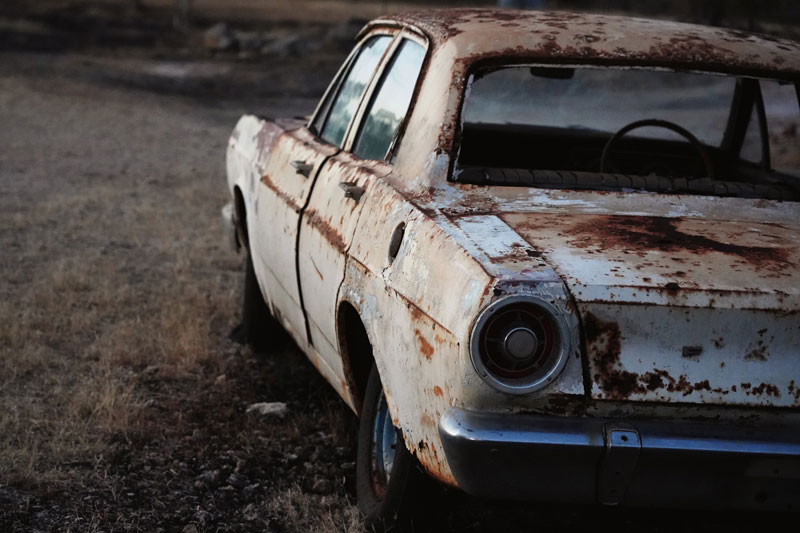
Which Car Parts Are Vulnerable to Rust?
Knowing where rust is most likely to appear on your car is as important as understanding how to prevent it. Rust prevention begins with identifying which parts of your vehicle have more corrosion vulnerability.
The most susceptible areas usually are:
- Undercarriage: This part constantly contacts moisture and salt which promote rust.
- Wheel wells and fenders: These areas gather dirt and moisture that can cause rusting.
- Door sills and lower edges of doors: Water often sits here, leading to corrosion.
- The trunk and hood: Debris and moisture can accumulate, creating a perfect environment for rust.
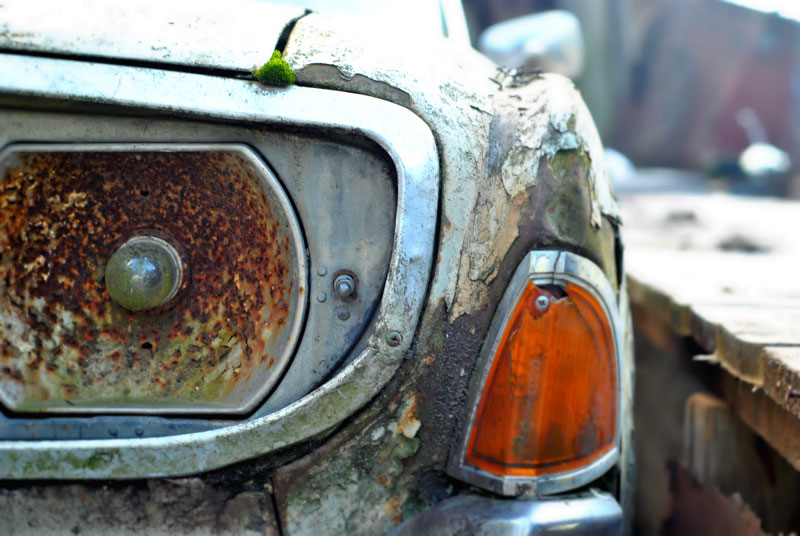
What Causes Car Parts to Rust?
Several factors contribute to the rusting of car parts, primarily involving the presence of iron, oxygen, and moisture. When these elements combine, they trigger chemical reactions that result in corrosion. The process starts when iron reacts with oxygen and water to form hydrated iron(III) oxide, commonly known as rust.
Road salt, high humidity, and even acid rain can intensify this process by providing an electrolyte that speeds up the reaction. The damage isn't just cosmetic. Rust can weaken the metal of your car, leading to dangerous structural issues if not addressed.
Understanding these causes is the first step in corrosion prevention. By recognizing the conditions that lead to rust, you're better prepared to protect your car from this insidious enemy.
How to Prevent Rust?
You're probably wondering, how can you prevent rust on your car? Well, it's simpler than you might think. Regular cleaning, wax application, and keeping an eye on your paint job are key steps to ward off rust.
Clean Your Car Regularly
One of the most effective ways to prevent rust on your car is to clean it regularly, ensuring every nook and cranny is free from dirt and grime. Regular cleaning is paramount in rust prevention and corrosion control.
Here are some tips for keeping your car squeaky clean and rust-free:
- Use a soft cloth and car cleaning solution to wash the exterior.
- Don't forget about the undercarriage - it's often a hotspot for rust.
- Dry your car thoroughly after washing. Remember, moisture is a key player in rust formation.
- Clean the inside too. Any spills or moisture can potentially lead to rust.
Wax You Car
Applying a good quality car wax to your vehicle's surface is another essential step in preventing rust. Not only does it give your car a shiny, like-new finish, but it also provides critical exterior protection. The wax forms a barrier that helps repel water, reducing the chance of rust formation.
The benefits of detailing your car extend beyond aesthetics. A well-waxed vehicle is less susceptible to scratches, which are common entry points for rust. Detailing also includes waxing, an important step in rust prevention.
The process might take a little time and effort, but it's a small price to pay for the longevity of your car. Remember, prevention is always better, and cheaper, than cure. So, get that waxing done!
Regularly Check Your Paint Job
Keeping a close eye on your car's paint job is another essential step in rust prevention. Small chips, scratches, or cracks in your paint can expose your car's metal body to moisture, which can initiate rusting.
Utilize the following rust prevention methods and paint protection techniques:
- Regularly wash and wax your car. This not only keeps it clean, but also adds an extra protective layer against rust.
- Address any damage to the paint promptly. Even the smallest scratch can lead to rust if left untreated.
- Use paint sealant yearly for an added layer of protection.
- Invest in professional detailing services. They can provide thorough paint protection techniques you might miss.
Tips to Keep In Mind
When it comes to maintaining your car and preventing rust, there are several key tips you should always keep in mind. First off, rust prevention strategies are essential. These include regular cleaning and waxing of your car to remove harmful substances that can cause rust.
Additionally, using rust-proofing sprays or paints can provide an extra layer of corrosion protection. Be sure to fix any scratches or dents immediately, as they can expose the metal underneath to moisture and air, leading to rust.
Regular inspections for signs of rust are also important, as early detection can save you from costly repairs down the line. Lastly, don't neglect the undercarriage—it's a common spot for rust to form.
Conclusion
In the end, your car's longevity truly lies in your hands. Don't let it fall prey to the relentless rust monster. Arm it with regular cleanings and a shield of wax, promptly repairing any battle scars.
But remember, your ultimate proof is rust-proofing sprays or paints, acting as the knight in shining armor. By doing these, your prized chariot will stand unscathed, gleaming in the face of time, a tribute to your care and vigilance.
FAQs (Frequently Asked Questions)
What Are the Early Signs of Rust on a Car?
- You'll notice early signs of rust like bubbling paint, discoloration, and small pits in the metal. Rust's impact on vehicle value is significant, so look for it in unseen areas too, like the undercarriage.
How Often Should I Inspect My Car for Rust?
- Isn't safety your top priority? You should inspect your car for rust at least every six months. Understanding rust inspection techniques and recognizing rust's impact on safety are essential steps in maintaining your vehicle's longevity.
Can Rust on a Car Be Completely Removed?
- Yes, you can completely remove rust from your car using various rust removal techniques. DIY solutions, such as using baking soda or vinegar, can also effectively eliminate minor rust spots.
